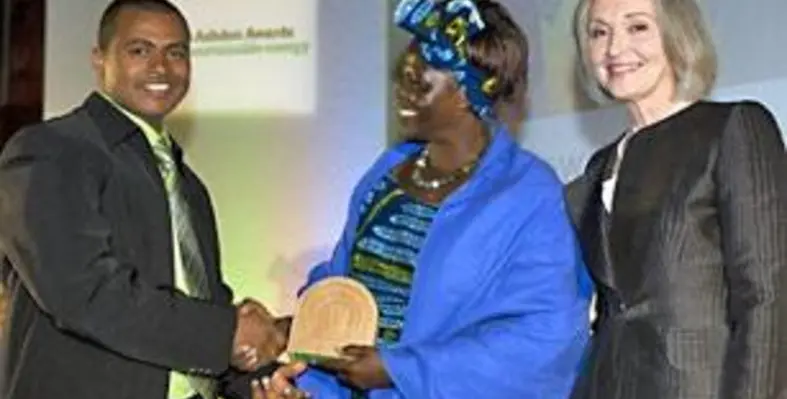Eight sustainable energy pioneers from the African continent, India and Pakistan have been selected as finalists for the prestigious Ashden Awards for Sustainable Energy 2011
The finalists will compete for over £120,000 prize money. The winners will be announced at a ceremony hosted in London on 16 June 2011.
Real-life pioneers
The 2011 Ashden Award finalists provide policy-makers, businesses and communities across the globe with pioneering real-life examples of how this can be done through the use of local clean energy technologies combined with clever marketing strategies. From the production of biomass pellets from crop waste to replace coal in India to the provision of a range of solar-powered products to off-grid communities in Africa, these finalists prove that it is possible to meet the energy needs of the poor in a way that radically improves lives, drives economic growth, cuts CO2 emissions and saves trees.
Since 2001 Ashden Award winners have improved the lives of 23mn people worldwide and together are saving over three million tonnes of CO2 a year - this years’ international finalists alone have saved over half a million tonnes of CO2, equivalent to the CO2 emissions of 90,000 UK homes. And it doesn’t stop there: all award finalists have ambitious plans to step up their efforts and to continue in their drive to cut carbon emissions and improve lives.
Sarah Butler-Sloss, Founder Director of the Ashden Awards said, "Our dream is a world where access to clean, affordable electricity and fuel can be enjoyed by the poor, transforming living standards, reducing CO2 emissions and easing the pressure on our dwindling forests. The 2011 Ashden Award finalists are making this vision a reality, and their potential for expansion and replication is high. It is our sincere hope that others are inspired to enable their growth and follow their lead.”
The African projects selected are:
AJDR Cooperative, Rwanda for helping street kids and unemployed youth earn an income by making fuel-efficient charcoal-burning stoves from scrap metal, heat retaining insulated baskets and wood burning rocket stoves. Over 16,000 efficient stoves have been sold in the past four years, saving over 8,000 tonnes of CO2. With the Rwandan government firmly committed to cutting charcoal use, AJDR is further improving the efficiency of its stoves.
Nuru East Africa Ltd, Rwanda for finding a new way to provide affordable lighting in rural areas using LED rechargeable lamps that sell for only US$5. The lamps replace smoky kerosene lamps in homes and are also used as bicycle lights. Nuru has also developed pedal powered generators to recharge the lamps. Nearly 10,000 lamps have been sold and 70 pedal-powered generators are now in use, mainly in Rwanda and also in Kenya. And with a new carbon finance deal, Nuru plans to set up hundreds of new entrepreneurs in the next three years.
Toyola Energy Ltd, Ghana for an innovative business model which has succeeded in selling 154,000 efficient and affordable charcoal stoves to low-income families, 75 per cent of whom buy the stoves on credit and use savings on charcoal to pay cash back. The stoves save about 26,000 tonnes of charcoal a year, and around 150,000 tonnes a year of CO2. Toyola plans to open more centres in Benin, Sierra Leone and Nigeria in the next two years, stepping up sales to a further 140,000 stoves by 2013.
ToughStuff International, UK and Africa for the manufacture and marketing of a range of low-cost and robust solar products to off-grid communities across Africa, bringing the benefits of light, mobile phone charging and radio to poor households. So far 140,000 PV modules have been sold, benefitting around 740,000 people. The company also works with humanitarian relief agencies to bring solar lighting to people living in disaster zones in Haiti and Pakistan. ToughStuff aims to reach 33mn people by 2015 through its regional offices in Nairobi, Lagos and Johannesburg.
Ugastove Ltd. Uganda for making fuel-efficient charcoal and wood stoves for homes, schools and businesses, which sell for as little as US$7 and for making the stoves accessible to the poor through a scheme which allows customers to pay back the price of the stove through the cash they save on charcoal. About 80,000 stoves have been sold since 2006 and their total greenhouse gas savings are now over 100,000 tonnes a year of CO2. The enterprise is expanding to reach customers in more remote parts of Uganda and beyond.














